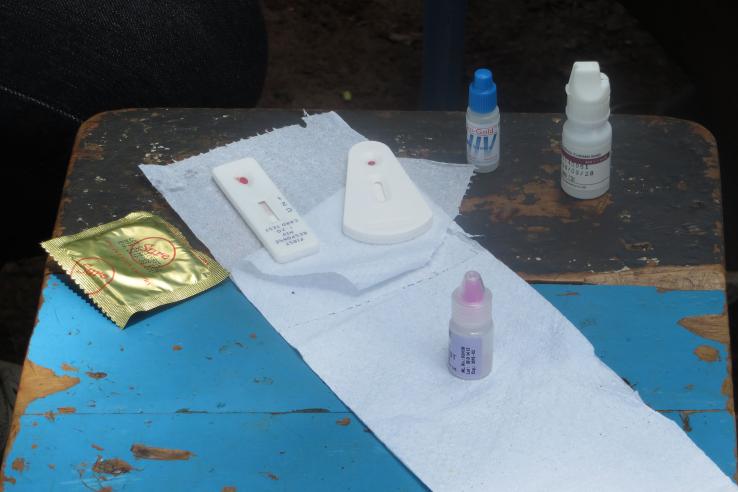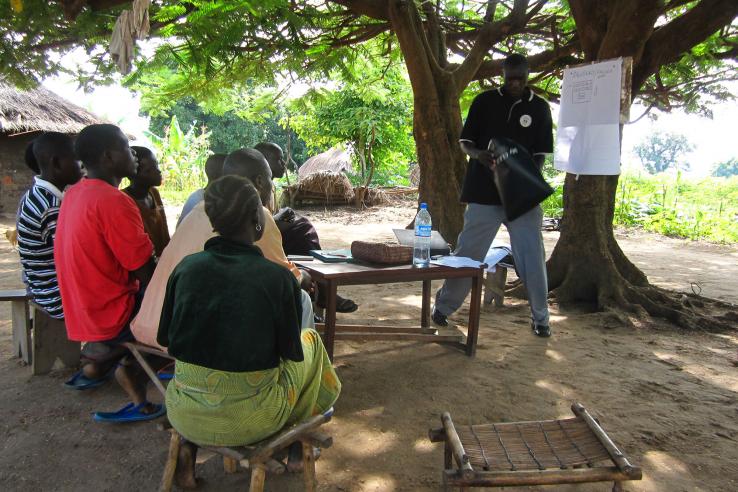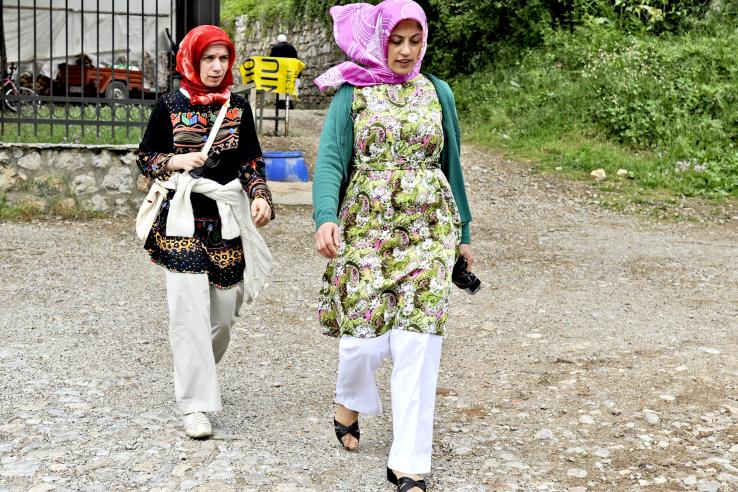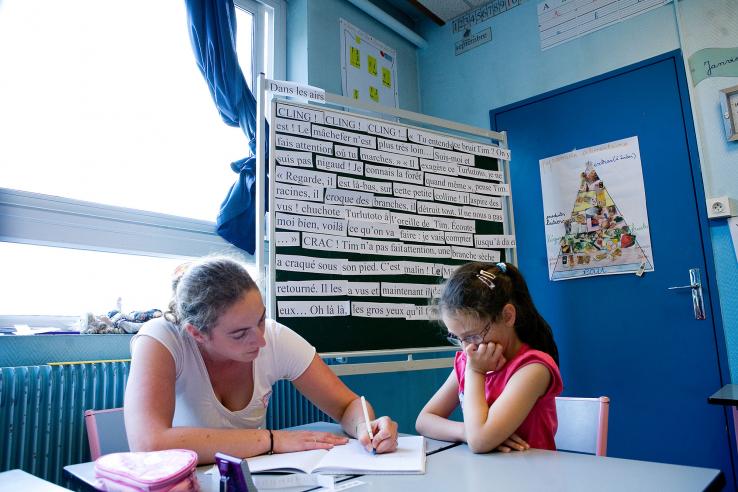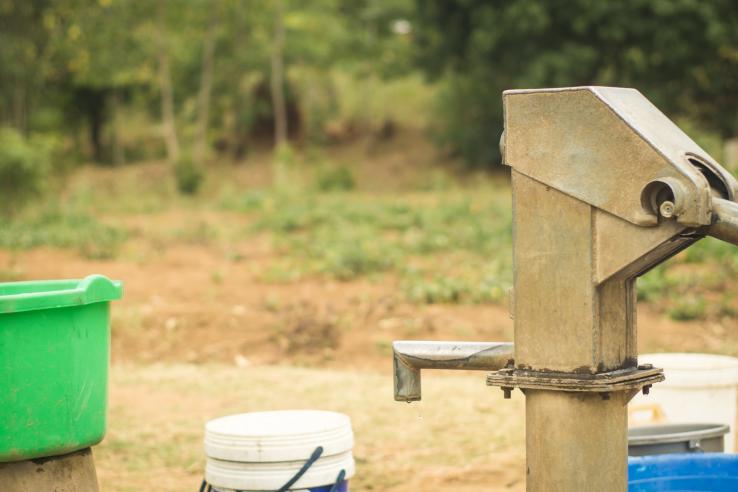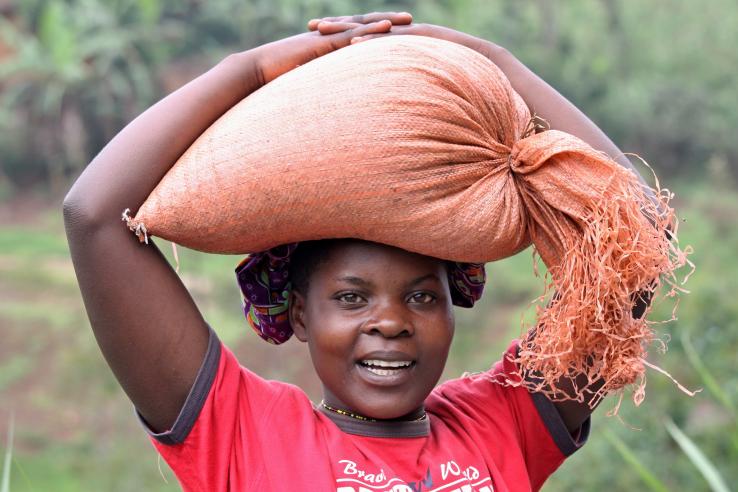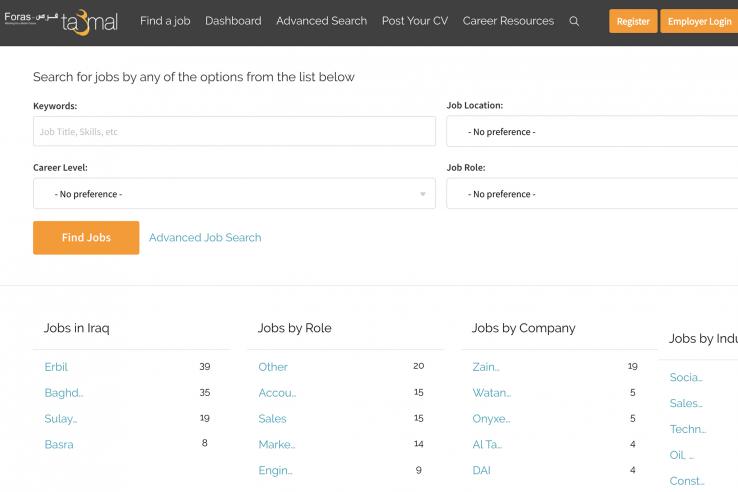Displaying 91 - 105 of 1286
Evaluation
Researchers evaluated the impact of direct mail and phone calls on the turnout of Black voters in ten different states. Neither mailings nor phone calls significantly impacted voter turnout, perhaps due to the large volume of political messaging that voters had to navigate.
Evaluation
Researchers evaluated the effects of introducing price increases during peak periods and also real-time information about electricity usage to residential customers in the United States. Households that received feedback about usage reduced consumption and individuals were more responsive to pricing events that happened with more advance notice.
Evaluation
Researchers worked with the NGO Seva Mandir to measure the impact of an incentives program that aimed to improve Assistant Nurse Midwife (ANM) attendance in rural clinics in Udaipur. Although the incentive program initially led to a large improvement in attendance, effects faded after the first six months, at least in part due to implementation challenges.
Evaluation
Researchers introduced a convenient and hygienic sanitary product, reusable menstrual cups, to Nepalese girls in the seventh and eighth grades. Their evaluation addressed several questions: Is menstruation as large a barrier to education as many believe? Does switching to modern sanitary products increase attendance and school performance among girls?
Evaluation
Researchers conducted a randomized evaluation to test the impact of lottery-based financial awards given to young individuals who tested STI-negative on their likelihood of contracting HIV and engaging in risky sexual behavior. The intervention provided frequent rewards at short intervals to bring the benefits of safe sex closer to the present and used a lottery design to try to target higher-risk individuals. Lottery-based financial incentives reduced the prevalence and incidence of HIV by 12 percent and 21 percent respectively, and their impact was largest among individuals with a high tolerance for risk.
Evaluation
In Uganda, researchers evaluated whether offering financial education or group savings accounts to church-based youth groups increased savings. One year after the intervention ended, they found that total savings and income had increased among youth who were offered financial education, group savings accounts, or both education and group accounts.
Evaluation
Researchers conducted a randomized evaluation to test the impact of targeting cash transfers to women on household spending and women’s empowerment. Targeting the cash transfer to mothers increased household spending on food. Women offered the transfers also had stronger measures of empowerment through increasing women’s control of household resources.
Evaluation
This study evaluated the impact of a preschool nutrition and health project that targeted anemia in the slums of Delhi, India on child health and school attendance. Results showed the program positively impacted weight-gain and school attendance, particularly for groups with high base-line rates of anemia.
Evaluation
Researchers assessed the impact of a recreational tutoring program on students’ academic achievements and interest for school work provided by the NGO Apfee. Researchers found that children identified as falling behind by their teachers in schools where the tutoring program was offered did not improve their reading or math skills, although they developed a taste for reading and academic subjects. These results hold two years after the implementation of the program.
Evaluation
Researchers tested a fee-for-service scheme, a type of performance pay, at health facilities in the Democratic Republic of Congo to evaluate its impact on health service utilization. While fee-for-service facilities invested more effort in attracting patients, this increase did not translate into higher levels of service utilization or better health outcomes. Additionally, health workers in fee-for-service facilities became less intrinsically motivated and less satisfied with their jobs compared to their counterparts in fixed payment facilities.
Evaluation
Researchers measured the impact of different interest rates loan take-up, amount, and repayment rates among female clients of Compartamos Banco in Mexico. Lower interest rates led to an increase in the number of loans issued, loan amounts, and new borrowers but did not increase profits in the short term.
Evaluation
Researchers partnered with Partners in Health (PIH) to conduct a randomized evaluation to test the impact of monthly coupons and different CHW delivery methods on chlorine usage and child health outcomes in Southern Malawi. They find that the coupon program had stronger impacts on both outcomes and was more cost-effective than having CHWs distribute free chlorine to households during routine monthly visits.
Evaluation
In Rwanda, researchers conducted a randomized evaluation to compare the impact of Huguka Dukore, a youth employment and training program, to that of cash grants of an equivalent value on several economic outcomes. Huguka Dukore improved hours worked, assets, savings, and subjective well-being, while cost-equivalent cash transfers increased all these outcomes as well as consumption, income, and wealth.
Evaluation
Researchers evaluated the impacts of a $68 million infrastructure investment program in Mexico on urban residents’ access to infrastructure, property values, private investment, moving rates, and community cohesion. The study found that access to infrastructure and property values improved in neighborhoods participating in the program. Private investment in these neighborhoods also increased; moving rates decreased, and data suggests that safety improved as a result of the program.
Evaluation
Researchers evaluated the whether providing objective information helps jobseekers target better-suited jobs.




